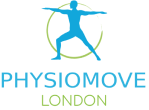It is without a doubt that this year has been difficult for everyone. The impact of COVID-19 has had a hugely detrimental impact on people’s lives, with millions of the population being left unable to work, see family and friends and take part in their usual activities.
As a result, there has been a rise in mental health issues since the start of the pandemic in March, with many struggling to cope with the effects of the virus as a whole.
A recent survey from the Office of National Statistics showed that one in five adults were likely to be experiencing some form of depression during the pandemic – almost double that from the period of July 2019 to March 2020. One in eight adults have then gone on to develop moderate to severe depressive symptoms.
Stress or anxiety was the most common way adults experiencing depression felt their well-being was being affected, with nearly 85 per cent stating this.
With that in mind, looking at ways in which we can have a positive impact on our mental health is more important than ever. And one of the best ways to achieve this is through exercise.
Whilst the more obvious benefits of exercise are physical, being active can, in fact, significantly lift your mood and improve energy levels. Exercise releases chemicals, including endorphines and seratonin, to boost your sense of well-being and, at the same time, suppresses the release of hormones that cause stress and anxiety.
However, you don’t need to spend hours a day burning up a sweat – just 15 to 30 minutes a day is all it takes to have a positive impact on how you feel, both mentally and physically.
What’s also important to remember is that you don’t need a gym – there are many simple ways you can exercise without one. Here are just a few ideas for how you can keep yourself active:
● Go for a walk or run – this is a great place to start as, not only does it get your heart rate up, it’s a really effective way of getting outside to clear your head and help to reduce anxieties. You can even set yourself a distance goal to keep on track
● Get on YouTube – since the start of the pandemic, lots of personal trainers have started uploading workout videos on to YouTube for everyone to access. There is something for every level and it allows you to do it in the comfort of your own home if this is where you feel more comfortable
● Dust off your bike – if you have a bike gathering dust in your garage, now is the perfect time to get back in the saddle. A perfect cardiovascular workout, cycling can help boost your fitness and mental health at the same time
● Try yoga or Pilates – if you’re after a more gentle way to exercise, this could be perfect for you. Not only do they strengthen and tone your muscles, they are a great way to relax, practice some mindfulness and help with stress and anxiety.
Another positive of regular exercise or physical activity is that it can naturally boost your immune system. Exercise allows immune cells to perform effectively, increasing blood flow, reducing stress and inflammation, which can slow the immune system down. As a result, it strengthens antibodies which help fight infections.
One study found that moderate-intensity exercise is linked to lower rates of upper respiratory tract infections, which includes viruses like the flu and common cold.
With COVID-19 case numbers still unstable, it seems like a more important time than ever to keep your immune system strong by exercising and living an overall healthy lifestyle.
Regular physical activity can therefore be a powerful tool to deal with mental health problems and boost your immune system, whilst also increasing your energy levels and giving you a more positive outlook on life, despite the challenges we are all currently facing.
We do recommend consulting your doctor or physiotherapist if you are thinking of taking up any new form of exercise to reduce the risk of pain or injury, and to have a tailored exercise program. If you would like to speak to one of our specialists for advice or for an assessment, please visit our Contact Us page.


